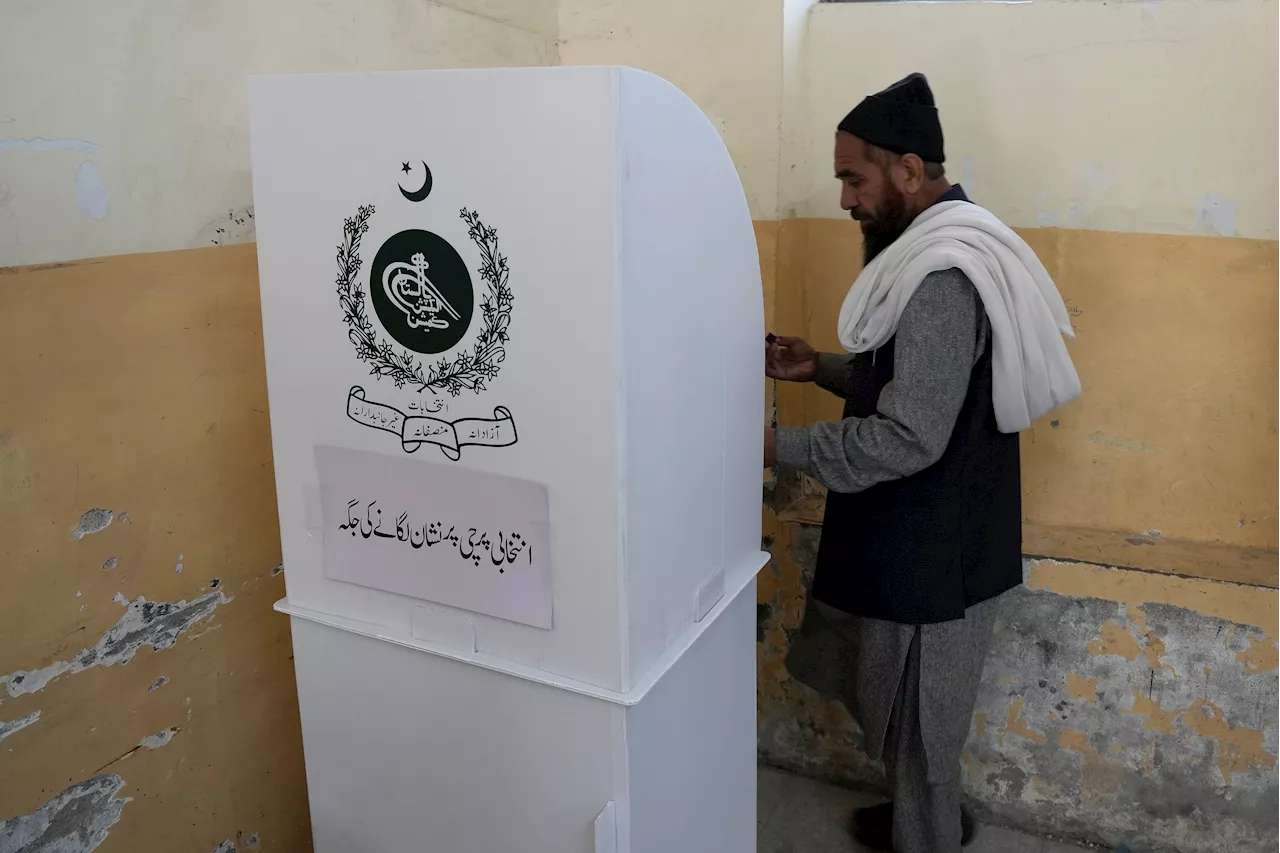Tens of thousands of police and paramilitary forces were deployed at polling stations to ensure security.
A Pakistani moves in the polling booth to cast his vote at a polling station during the country's parliamentary elections in Islamabad on Feb. 8, 2024. | Anjum Naveed/APISLAMABAD — Pakistanis braved cold winter weather and the threat of violence to vote for a new parliament Thursday a day after twin bombings claimed at least 30 lives in the worst election-related violence ahead of the contested elections.
The election comes at a critical time for this nuclear-armed nation, an unpredictable Western ally bordering Afghanistan, China, India and Iran — a region rife with hostile boundaries and tense relations. Pakistan’s next government will face huge challenges, from containing unrest, overcoming an intractable economic crisis to stemming illegal migration.Fazal Hayyat, 38, a driver, was one of the first voters in the northwestern city of Peshawar.
As many as 44 political parties are vying for a share of the 266 seats that are up for grabs in the National Assembly, or the lower house of parliament. An additional 70 seats are reserved for women and minorities in the 336-seat house. The top contender is the Pakistan Muslim League party of three-time former Prime Minister Sharif who returned to the country last October after four years of self-imposed exile abroad to avoid serving prison sentences at home. Within weeks of his return, his convictions were overturned, leaving him free to seek a fourth term in office.
The Sharifs and Bhutto-Zardari are traditional rivals but have joined forces against Khan in the past, and Bhutto-Zardari served as foreign minister until last August, during Shehbaz Sharif’s term as premier. Candidates from Khan’s party have been forced to run as independents after the Supreme Court and Election Commission said they can’t use the party symbol — a cricket bat on voting slips — to help illiterate voters find them on the ballots.
